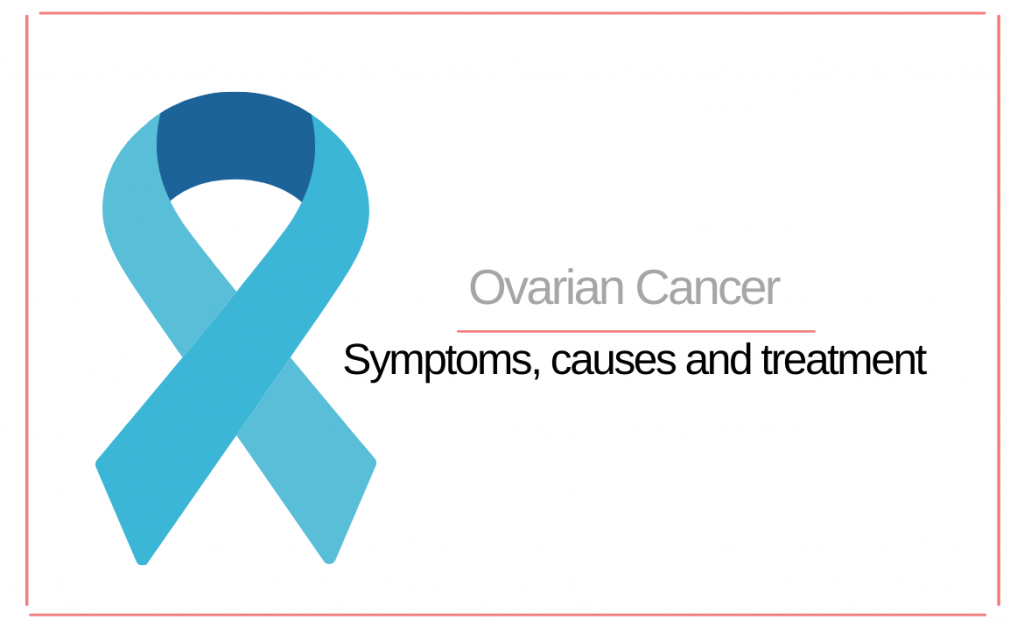Here at Wollongong Obstetrics and Gynaecology, we are strong advocates of Teal Ribbon Day, in support of Ovarian Cancer awareness. We hope that by raising awareness, more women will be able to access the best treatment and support along with gaining knowledge of the symptoms to be aware of.
According to research, around 3 in 100 Australian women who have cancer suffer from ovarian cancer. With approximately 1000 Australian women being diagnosed with ovarian cancer each year. Therefore, all women must be familiar with the common signs and symptoms associated with ovarian cancer.
Below, Dr Kothari provides some insight into the symptoms, causes and treatment options available. But first, it is important to know what ovarian cancer is.
What is ovarian cancer?
The ovaries are a pair of small organs in the female’s reproductive system that contain and release an egg once a month, also known as ovulation.
Ovarian cancer is when abnormal cells grow and multiply in one or both ovaries. There are several types of ovarian cancer, such as:
- Epithelial: which affects the surface layer of the ovary.
- Germ cell: originates in the cells that make the eggs.
- Stromal tumours: develop within the cells that release female hormones.
What causes ovarian cancer?
Whilst it is not exactly known what the causes of ovarian cancer are, the following are known for being potential risk factors:
- Older age: most likely in women over 50.
- You have never had children.
- Hereditary: strong family history of ovarian, breast, endometrial or colorectal cancer.
Some research also suggests that smoking and obesity are also linked to increasing your chances of ovarian cancer.
What are the symptoms?
The signs of ovarian cancer are often like other conditions related to everyday life, in particular menopause, therefore making it hard to detect.
The most common symptoms to look out for are:
- Increased abdominal size or persistent abdominal bloating.
- Abdominal or pelvic pain.
- Feeling full after eating a small amount.
- Needing to urinate often or urgently.
- Changes in bowel habits.
- Abnormal weight gain or loss.
- Excessive fatigue.
- Lower back pain.
- Indigestion or nausea.
- Bleeding after menopause or in-between periods.
- Pain during sex or bleeding after.
If you have any of the above symptoms and if these are unusual for you or persist, you should see your doctor or a gynaecologist.
What are the treatment options?
The type of treatment you will undergo depends on several factors including the size of cancer, how quickly it is growing, where in the ovaries it started and your age, health, and medical history.
Once your specialist has carried out a thorough examination the best possible treatment will be selected based on the type of cancer, while also considering your lifestyle and future wishes.
Treatment options
- Chemotherapy: medication that aims to kill cancer. Usually administered through IV drip for a few hours.
- Surgery: to remove one or both your ovaries. Your uterus, cervix and fallopian tubes may also be removed. Usually carried out via a laparotomy immediately after the cancer is diagnosed.
- Radiotherapy: aims to control or kill cancer. However, rarely used in the treatment of ovarian cancer.
- Hormonal therapy: drugs that stop the hormones that help your cancer to grow from being made. Mainly used after the initial treatment is finished.
If you have any of the above persistent symptoms and are concerned, contact our friendly staff at Wollongong Obstetrics and Gynaecology to book an appointment with Dr Kothari. Our team will support you every step of the way.
Call: 02 4225 1999
Email: admin@wollongongObGy.com.au

